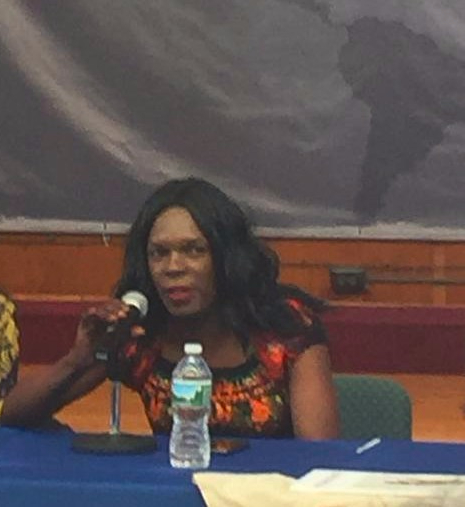Written by Beyonce Karungi, Executive Director, Transgender Equality Uganda
The Commission on the Status of Women (CSW) is the largest international gathering of governments and civil society dedicated to developing an agenda that promotes progress for women and girls. Each year, the UN brings together women and girls from all over the world to discuss issues that affect women from all spheres of life. Despite the sense of total inclusion, transgender women and girls are often underrepresented in this crucial space. Consequently, the transgender community faces a challenge in raising and addressing the issues specific to them.
The CSW recently emphasized inclusion of transgender people in its sustainable development goals. The discussion surrounding trans inclusion was unprecedented and a major credit to the UN organizers. Hopefully, this discussion continues to provide an ongoing dialogue that will work toward the improvement of the status of all women – including trans women – around the world.

Beyonce Karungi presenting at a sex worker panel during CSW
I was one of the few transgender women present at the latest CSW. While there, I participated in many forums including development of the UN Women’s Strategic Plan development (2018-2021) at the UN headquarters. We lobbied UN women to include the transgender community in the strategic plan by connecting us with country offices and registering us to participate not only in trans-specific events but also in the main CSW discussions that typically include all women and girls.
At CSW, I also participated in a sex worker session focused on the conditions faced by this key population. Internationally, policy discourse has shifted in many ways to defend sex work as real work. Still, efforts to criminalize clients are unaligned with what sex workers need in order to be able to thrive as workers.
I was also involved in the Lesbian Bisexual Transgender Intersex (LBTI) women’s session. LBTI women are not explicitly mentioned as a vulnerable group in many spaces. This cultural stance and attitude is in large part internalized by LBTI people, which creates a strong obstacle to self-identification. The stigma surrounding LBTI women makes them a socially invisible community within general society. The result is that, with a few exceptions, the most vocal leadership of LBTI women’s rights has traditionally been men.
CSW participants discussed many issues, including peace and security for women and human rights defenders, sexual and reproductive health and rights, maternal health, gender-based violence, and family planning. Transgender women and girls continue to be excluded from the economic, political, and social sectors, which limits their access to education, health services, and employment.
While one of the main goals of the CSW is to empower all women and girls, transgender women remain unfairly marginalized.
The CSW needs to ensure that transgender people are represented and that data collection is supported so we can begin to advance the livelihood and well-being of transgender women everywhere. It is within the power of the CSW to include all women in discussions on women’s status in the world, and doing so will increase the awareness and importance of transgender inclusion, health, and rights.
